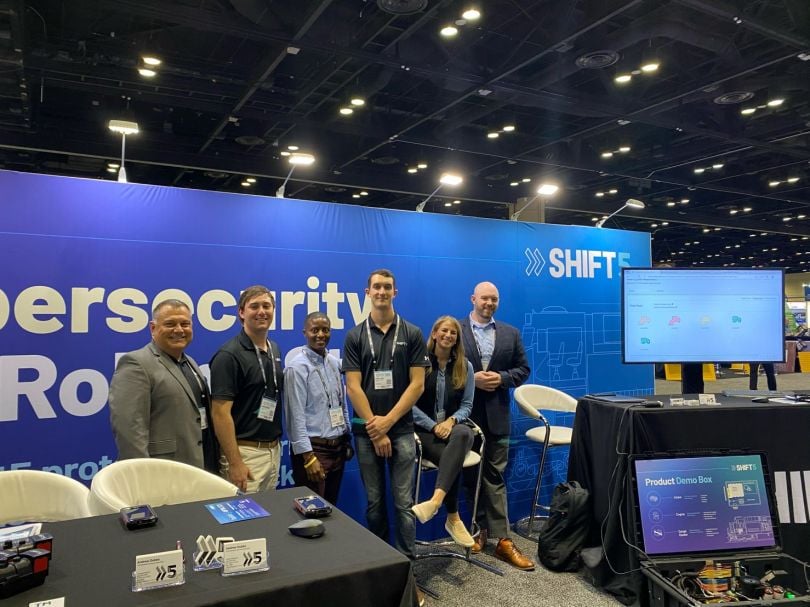
While the U.S. government was once at the forefront of tech innovation, leading the charge in space exploration and investing in the early stages of the internet, it has since fallen behind. As a result, the government tends to have a reputation for buggy, fragile websites that aren’t as efficient as they could be. Some may remember the struggle of applying for unemployment at the beginning of the pandemic, as just one example. Many state unemployment websites simply couldn’t handle the influx of traffic, resulting in crashes or other malfunctions.
So why is government technology lagging behind the private sector? Competition for workers from the private sector, bureaucratic red tape and long, tedious contracting and procurement processes are largely to blame.
As the country rebuilds itself in a post-vaccine world, further technology adoption in the public sector will be necessary to better help civilians. This is especially the case if the government wants to keep up with the private sector when it comes to tech innovation.
Luckily, more private companies are taking a larger interest in securing government funding. Other organizations like accelerator programs and public marketplace platforms are also making it easier for tech companies and government agencies to work together.
As it turns out, and you may have guessed, many of the innovators in the space are located right here in the DMV. Built In DC spoke with local leaders to learn more about why government tech is lagging, and what is being done to help bring Uncle Sam into the 21st century.
3 Reasons Why Govtech Lags Behind the Public Sector
- Pay Disparities Between Private and Public Tech
- Government Budgets Vary
- Complicated Procurement Processes
Pay Disparities Between Private and Public Tech
One major reason government tech innovation is slower than the private sector has to do with pay disparities. Generally speaking, technology jobs at private companies have higher salaries and flashier benefits than those in the public sector. In fact, according to a data analysis by Indeed’s Hiring Lab, tech salaries in the private sector are almost double that of the public sector.
The Great Resignation is also a contributing factor to tech talent choosing the private sector over government jobs. Those who have tech jobs in the public sector are more likely to be enticed to leave by private companies who are hard at work to nab the best tech talent in a candidate-driven market. Government hiring managers also tend not to use lower-tech recruitment tools when it comes to attracting new talent, using a “post and pray” method over more advanced talent acquisition.
“The intelligence community in particular has struggled with attracting tech skills, because their salaries are so disproportionate to the private sector, particularly for younger professionals. And then that just trickles on to mid-career and senior folks as well,” Rob Morello, Fraym co-founder and VP of analytics, told Built In. Fraym is a geolocation data analytics company that has done a lot of work with USAID, helping the foreign aid department pinpoint communities most in need of support.
The rising student debt crisis doesn’t help either, Morello says. It’s no wonder young professionals are flocking to shiny startups with more enticing pay and benefits rather than the lower wages of the public sector. If you were a new graduate with five or six figures of debt (and maybe you are), which employer would you choose?

Government Budgets and Procurement Processes
Finances also have a key part to play in which government agencies have the funds to invest in technology modernization and which don’t. To put it bluntly, many government agencies don’t. According to cybersecurity expert and Shift5 CEO Josh Lospinoso, the Department of Defense is much more active when it comes to contracting tech companies, due in part to the amount of funding ($768 billion) it receives compared to other departments. For comparison, the federal education budget last year was $66.6 billion, a 8.4 percent decrease from 2020.
Shift5 is one of those companies the DoD has invested in. The operational technology cybersecurity company has won multiple contracts with the U.S. Air Force and Army, installing OT cybersecurity hardware and software to protect government vehicles and machinery from cyberattacks. The company also helps protect other critical infrastructure from cyber attacks, including commercial transit and public utilities such as water, gas and electricity.
Another reason government tech systems aren’t as sophisticated compared to those in the private sector has to do with the contracting process itself. In order to work with the U.S. government, companies have to go through a long, often complicated procurement process. Each department also has different rules and regulations when it comes to contracting with private companies. The process can take months or even years to complete. If companies want their services to be included in department budgets for future projects, processes like The Program Objective Memorandum (POM) cycle takes even longer, usually starting three years in advance of five year-long budgets.
“When the federal procurement process was being developed, the mental model congress had was to use the process for huge purchases like aircraft carriers or tanks – multi-million dollar projects,” Lospinoso told Built In. “That’s a lot of money, so it made sense for there to be a long process of vetting which companies get those contracts to make sure taxpayer’s money is being utilized efficiently.”
The procurement process might have made sense for larger purchases back when it was being developed, but for smaller contracts being awarded to tech companies these days, it’s an outdated, lengthy process that can make companies reluctant to enter the public sector. Luckily, there are still ways for companies to work with the government outside of the procurement cycle, which is typically tied to annual budgets and legislation.
Interim contracts, which are usually shorter and for less money, can help companies get their foot in the door and prove the value of their products and services in the public sector. After a few interim contracts, government agencies may be more willing to create longer, higher paying contracts or advocate for funding specific projects during the POM cycle.
Innovation Persists
Despite bureaucracy slowing things down, there are still many tech companies working with federal, state and local governments on exciting, impactful projects. In fact, while the number of companies working with government agencies has decreased in recent years, the cumulative amount of government funding those companies have received has increased. According to USASpending.gov, the U.S. government spent $1.1 trillion on contractual services and supplies, compared to $893.6 in 2018. Of course, not all of the companies that received funding were tech companies, but the data does suggest that the U.S. government is increasingly outsourcing to the private sector.
One of those companies is Boomi, a FedRAMP-certified, cloud-native integration platform. The company has helped federal, state and local governments integrate disparate pieces of information for more efficient and cohesive government experiences for civilians. With Boomi’s cloud platform, data can be shared across departments and systems to create more seamless experiences and increase cloud adoption in the public sector.
“Government IT systems are always complex, just due to the nature of the distributed, bespoke and customized little applications that sit throughout all these different ages and systems,” Boomi CTO Joseph Flynn told Built In. “[When we work with a department] we start relatively small and grow. What typically happens is we can show them what the technology doesn’t and find new ways that [departments] can transform how they connect disparate systems and data sources together.”
Another company collaborating with the government is iTech AG, an Arlington technology consulting firm that helps organizations streamline their operations. Founded in 2008, iTech AG is no rookie to IT modernization and has helped the U.S. government work more efficiently to better serve civilians. One recent example was at the beginning of the Covid-19 pandemic, when iTech AG helped local governments quickly distribute CARES Act money to constituents.
The company deployed a grants management solution within just 22 days, iTech AG CEO Frank Antezana told Built In in an interview. The tool helped users more effectively distribute the Covid relief funding to their communities. According to Antezana, the company managed to distribute $92 million in relief funds across Ohio’s Montgomery County. The same technology was later also implemented to support rent assistance programs, specifically for higher education students.
He credited the company’s agile approach — something Antezana says is often lacking in the public tech sector — for the speed with which iTech AG was able to take action.
“Having the government change from traditional waterfall to now agile, it’s been a heavy lift, to be honest. However, it’s one of the reasons why technology and some of the more cutting edge or next generation solutions have been delayed in the government,” Antezana added.

Resources for Government and Tech Companies
While many companies have been successful in winning government contracts, the process is still a difficult road. Thankfully, there are many organizations and tools that help bridge the gap between government and tech companies to further drive innovation. These companies are seeing soaring demand.
One organization, Dcode, is a D.C.-based accelerator program that guides tech companies through contracting and certification processes to help them enter the public sector. What makes Dcode unique is in addition to its traditional accelerator program, the organization also offers resources that any company can put to use.
Dcode’s subscription-based networking and learning platform, Nexus, has online modules to help tech companies navigate the contracting process as well as attend events and connect with government workers that are eager to modernize and innovate federal and state systems.
“We’re continuing to see increased demand from the government and tech companies looking to work together to better serve Americans,” Dcode CEO Megan Metzger said in a statement last year. “[Nexus] allows even more tech companies to access the expertise and connections they need to meet that demand.” To date, the accelerator says it has helped hundreds of companies navigate working with the government, 15 of which have unicorn valuations.
Another organization helping drive tech innovation is Procurated, a D.C. government contracting and supplier marketplace backed by peer reviews. The platform makes it easy for procurement officers — those who pick which suppliers government agencies should use for goods and services — to sort through companies based on past performance reviews from 8,000 verified public sector employees.
The last time we covered Procurated, the company had just raised a $10 million Series A to expand marketing efforts and increase the brand’s reach.
“We are already seeing governments and schools using this invaluable information to make more informed decisions, selecting suppliers that their peers have vouched for or avoiding those that have a problematic track record,” Yarkin told Built In via an email in December of 2021.
While the above challenges facing efforts to bring more tech modernization to government operations likely won't be dissipating anytime soon, neither will the demand for solutions from the likes of Dcode, Procurated and others bringing innovation to the space.




